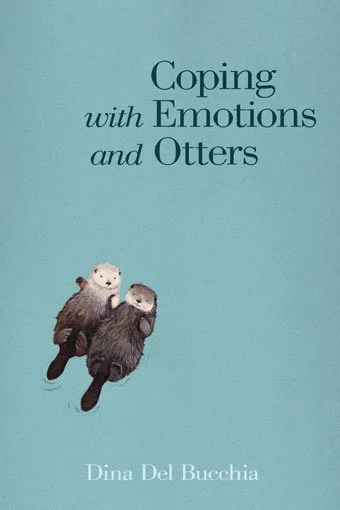Coping with Emotions and Otters
Taking as her guide the structure of the contemporary pop psychology how-to book, with its neatly numbered and ordered rules regarding how to change and improve our lives, and also flirting with a concept found in serial poems such as Jack Spicer’s “Psychoanalysis: An Elegy,” Dina Del Bucchia fashions incredibly witty and punchy guides for exploring our most awkward emotions.
The question becomes how to get a grip on these emotions and “self- actualize” in an age when the height of illusory autonomy is achieved by maximum contagion, by “going viral,” and through intensely obsessive identification with celebrities – spectacular representations of living human beings who, as Guy Debord suggests, “exist to act out various styles of living and viewing society unfettered, free to express themselves globally” through the act of dramatizing by-products of our labour, emphasizing power and vacations, decision and consumption.
With the advent of reality show worship, our sense of emotional control and superiority is inextricably linked with enjoying an emotional arena full of “real people” that combines explosive “blowouts” with grave mockeries of our electoral process. This phenomenon was evident in the case of the now-deceased Nyac, one of eight sea otters brought to the Vancouver Aquarium following the massive Exxon Valdez oil spill that devastated Prince William Sound, Alaska, on March 24, 1989. Nyac skyrocketed to celebrity status when millions watched a YouTube video posted in 2007 that caught her holding hands with Milo (another otter).
In poems about this exciting celebrity hookup, by turns touching and ironic, Del Bucchia takes on our “society of the spectacle,” prompting us to meditate upon the media viewing frustum through which we channel so many of our emotions and thereby construct our sense of reality, when otters are looking out for one another in a way we often don’t.
